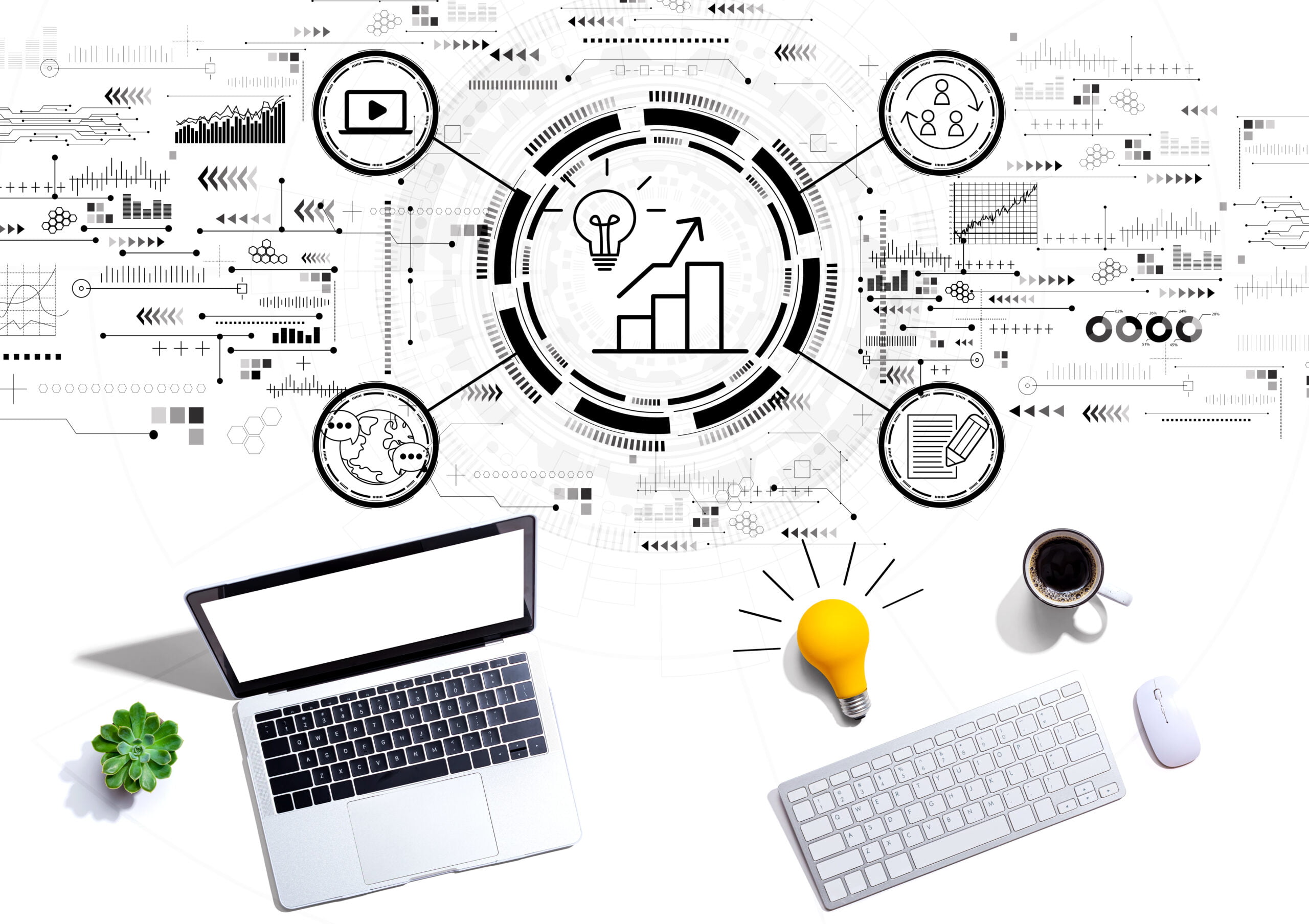What happens when crucial departments don’t talk to each other? On a small scale, there’s the possibility of miscommunications and misunderstandings. But when those escalate, it can lead to further division, poor morale, and ineffective business practices.
In short: silos don’t work, and customers pay the price. Integrating related digital tools, like ERP and CRM systems, is one way to break down those walls and improve process transparency.
What is an enterprise resource planning (ERP) system?
Whether your turnover is measured in millions or billions, ERP helps ensure that you’re properly managing the supply chain to meet the needs of your organisation, focusing on inventory, warehouse, shipping, logistics, and billing. For example, if you are a mover, you ensure you have sufficient boxes, tape, bubble wrap, vehicles, and people to complete the jobs you’ve been hired to do. If you sell paper, you need to know you have the supplies to keep up with demand, as well as the means of getting it from A to B.
Running your resource planning through a purpose-built platform ensures everyone within the organisation has access to the same information (process transparency), allowing them to contribute and learn from the planning process.
What is a CRM?
A customer relationship management system, or CRM is more than just a digital Filofax of names and contact details; it’s a history of a customer relationship, which provides you with insights into the future of that relationship, enabling you to track all customer interactions.
An advanced CRM includes a record of all correspondence, a summary of in-person meetings, details of what the customer is interested in, your proposals, and your sales. Again, this is accessible to all relevant parties, meaning the relationship is not in the hands of one salesperson or account manager – it’s with the company.
How do ERP and CRM systems work together?
Traditionally, salespeople have worked in isolation, developing and later closing a deal with very little input or interaction with other departments. However, a great deal of effort is being spent on trying to dismantle these silos to deliver a better, more streamlined customer experience.
In today’s busy workplace environment, structured ERP integration with your CRM system is as important as ever and is a vital part of the effort to streamline customer experiences. Let’s look back to the movers as an example: the salesperson produces a quote based on the size of the relocation project. If this information is passed to warehouse management, a stock check can be undertaken to be sure the required number of boxes, tape, packaging, etc. is available for the given date, keeping HR in the loop and ensuring staffing is sufficient to complete the job.
CRM and ERP Integration enable these ‘conversations’ to happen automatically so that the necessary stock is ordered or ring-fenced for moving day.
What are the benefits of CRM and ERP integration?
Accuracy and efficiency
Here is another (very simplistic) way of looking at the special relationship between the two systems: the CRM is populated with salespeople’s promises; and the ERP ensures they can deliver.
If you sell a product, you need to know that the product is available, and utilising CRM and ERP integration within your business processes ensures that these two important aspects are working together to meet expectations, both in terms of what is being delivered (accuracy) and when (efficiency). It also avoids the ‘human factor’ of forgetting to pass on a message, waiting to relay information until a specific meeting time, or even mixing up orders.
When the two systems are not integrated, the same data is often input into both systems, which is extremely tedious and time-consuming.
Improved visibility
Integrating the ERP and CRM systems enables greater visibility of demand so that inventory can be more effectively managed to reduce delivery times and prevent shortages. Over time, you can automatically build a better picture of customer trends, seasonal demand, etc., for more visibility of what’s coming to the business, enabling you to plan accordingly.
Improved synergy
When systems don’t work together, there’s less impetus for departments to work together. However, CRM and ERP integration allows you to align the different workflows, making all teams more efficient and enabling the organisation to deliver a better customer experience.
Cost savings
When your ERP and CRM systems are integrated, you can create automation across your quote-to-cash process. You gain cost savings from streamlining operations and improving decision-making. But you also free up your employees to focus more of their time on the jobs that they were employed to do, as opposed to all the laborious tasks that they have to do in order to do their jobs.
Bridges, not silos
Connecting departments by integrating key digital tools ensures business processes are moving in the same direction for the benefit of the customer but with the added benefits of improved cost-efficiency, better working relationships, and improved morale.
Hopefully, this article has highlighted the importance of CRM and ERP integration to your business and how refraining from connecting the two systems can hinder your operations massively. If you’d like to know how we can help you break down walls and start building bridges, get in touch.

